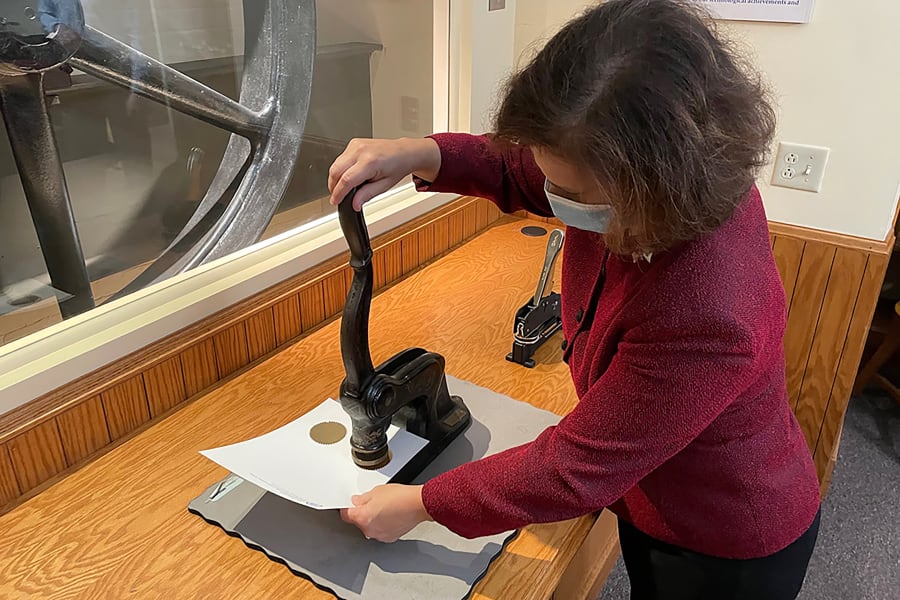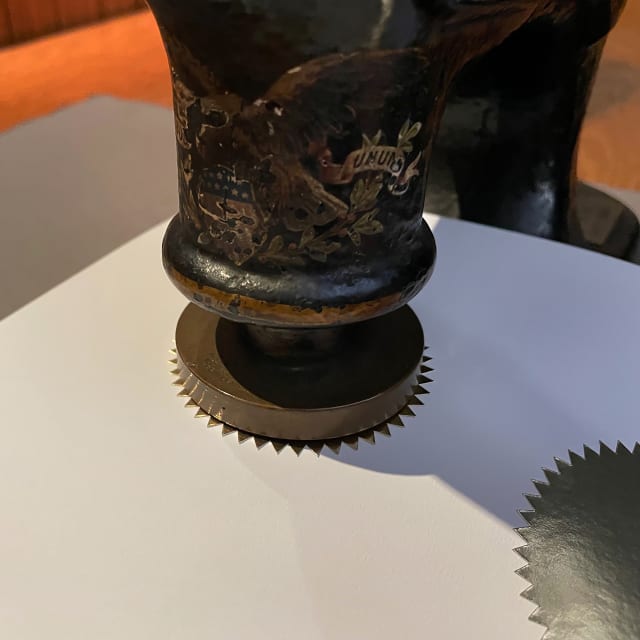PROVIDENCE, R.I. – Rhode Island dropped “Providence Plantations” from its name a year ago, but not from its buildings.
Providence Plantations is written in the script in marble near the State House dome and on bronze plaques in the entryway. The state seal with the full former name is on the rotunda floor, the elevator doors, door numbers and directional signs. It's even on the rug in front of George Washington's portrait in the state room.
Recommended Videos
Voters chose to strip the words “and Providence Plantations” from Rhode Island’s formal name a year ago by approving a statewide referendum, which was revived amid the nation’s reckoning with racial injustice following the murder of George Floyd. The word “Plantations” didn’t specifically refer to a place where slaves labored, but supporters of the measure insisted it elicited such imagery and was offensive.
Democrat Gina Raimondo signed an executive order in June 2020, when she was governor, to change state employee paychecks and executive agency websites. Voters approved the referendum in November 2020.
Since then, the state changed official websites, business cards and state employee paychecks. New letterhead is in use and citations are issued with the new state seal.
The administration is still compiling an inventory of places where the wording still exists, as well as determining potential costs and best practices for the removal, officials in Gov. Dan McKee’s administration said. A working group will convene before the end of the year to develop goals for next year.
State Rep. Anastasia Williams, a Providence Democrat, pushed to change the state name. Now she says there are other, extremely serious matters at hand that the state's leaders need to address — the ongoing pandemic, the growing number of homeless people, the need to welcome immigrants and refugees, and an education system that has failed children of color.
“I'm not taking any of the importance of it away, but where it is for me as a priority, we already won that battle and we know it has to be done,” Williams said last week. “We have some serious things at hand that are not even being seriously addressed.”
The remaining displays of the old name can be an opportunity to strike up conversations about what the voters voted for and why, she added.
Secretary of State Nellie Gorbea is the keeper of the state seal, and has been using a new embosser to apply the redesigned state seal to official documents.
Gorbea is running for governor. If elected, she said she would make sure there's a plan for removing the old name from the more challenging places, especially the seal in the State House rotunda, since many people see it there.
“It is the change that the voters wanted and so we should have, at bare minimum, a plan," Gorbea said. "If it hasn't been done, why not? But if it can be done, let's do it.”
In early November, state Department of Administration officials said they would share the inventory of places where the old state name was written and the costs for changing it, but as of this week it had not provided that accounting to The Associated Press. In the DOA building, the old state seal is on the front desk and on the directory of rooms.
Rhode Island was incorporated as The State of Rhode Island and Providence Plantations when it declared statehood in 1790. In 2010, nearly eight in 10 voters rejected the shorter name in a referendum.
Gorbea said she fears people will become cynical if they voted for the change yet the most public-facing displays remain the same.
“The state has changed," she said, “times have changed and government needs to change to accommodate that.”






